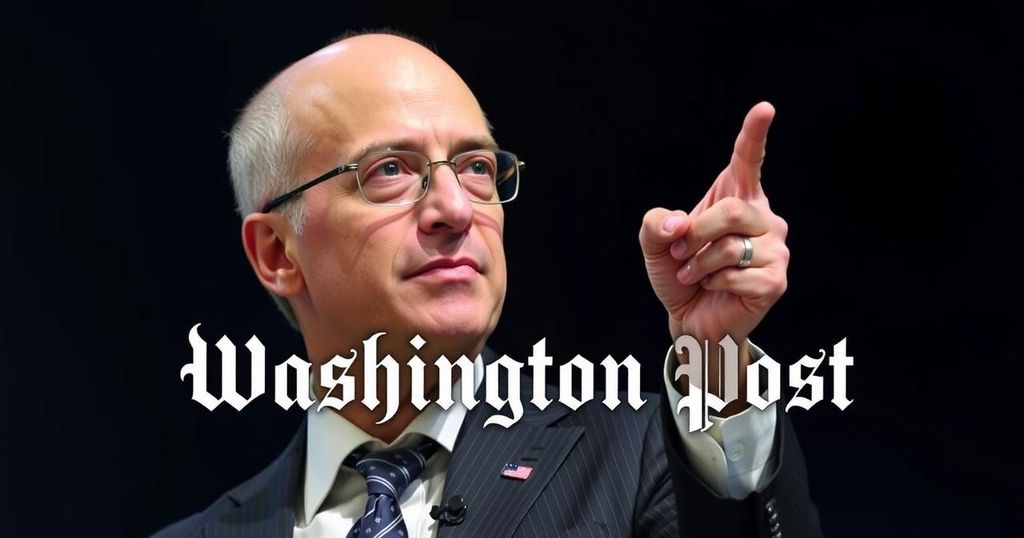Jeff Bezos Upholds The Washington Post’s Non-Endorsement Policy in Elections

Jeff Bezos defends The Washington Post’s decision to stop endorsing presidential candidates, stating it aims to enhance credibility and avoid perceptions of bias. The move led to a significant loss of subscribers and has sparked internal dissent among journalists. However, the leadership insists on the importance of journalistic independence, reflecting a broader trend in the media.
Jeff Bezos, the owner of The Washington Post, has publicly defended the newspaper’s recent decision to refrain from endorsing any presidential candidates, a move that led to approximately 200,000 digital subscription cancellations. This decision, reported by National Public Radio (NPR), was intended to enhance the publication’s credibility by avoiding perceived bias. Mr. Bezos stated in an opinion piece that although endorsements can seem influential, they ultimately foster a perception of bias which undermines the independence of the media. He emphasized that this choice, which was not influenced by any political considerations or consultations with potential candidates, is principled and necessary for the legitimacy of journalism. Furthermore, William Lewis, the publisher and CEO of The Washington Post, confirmed that the publication would be reverting to its historical approach of not endorsing political candidates. This decision sparked contention among some journalists and columnists within the paper, with reports indicating that up to twenty columnists expressed dissent and some even resigned in protest, deeming the endorsement decision a significant misstep. This policy shift by The Washington Post parallels a similar move by the Los Angeles Times, which also opted not to endorse a candidate, resulting in significant losses in subscriber numbers.
The Washington Post is renowned for its significant impact on American journalism, having gained prominence for investigative reporting on pivotal events such as the Watergate scandal and the Pentagon Papers. Its reputation is underscored by more than 76 Pulitzer Prizes, asserting its role as a key player in political reporting and editorial discourse. The recent decision to cease presidential endorsements arises amid concerns about media bias and the integrity of journalistic principles. The move reflects a broader trend in the media landscape, where the balance between editorial independence and public perception of bias has become increasingly scrutinized.
In conclusion, Jeff Bezos’s defense of The Washington Post’s decision to end presidential endorsements underscores an effort to preserve journalistic integrity and tackle perceptions of bias. While this significant shift has met with criticism from within the publication, highlighting a divide among its journalists, the leadership remains steadfast in returning to their roots of non-endorsement. This decision not only draws parallels with trends seen in other major newspapers but also emphasizes the ongoing discourse on the role of media in political elections.
Original Source: www.aljazeera.com






